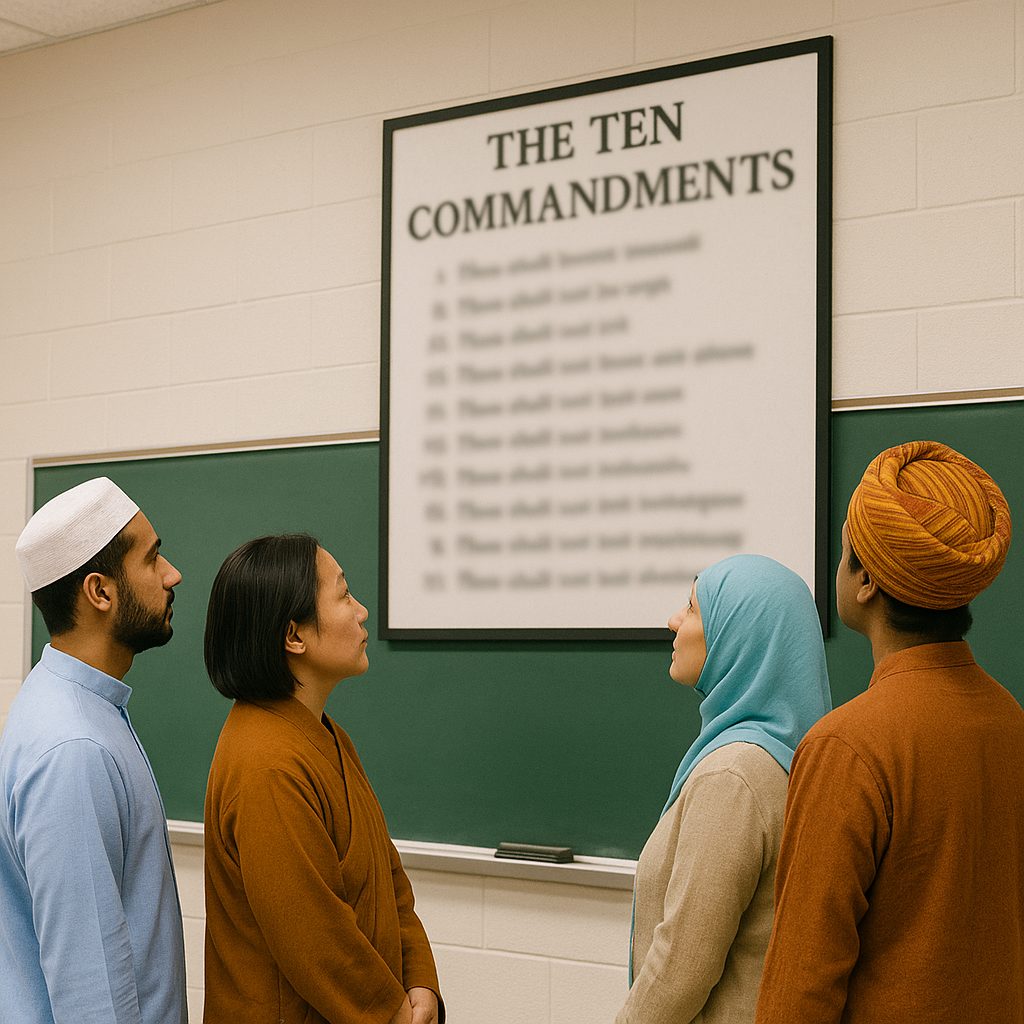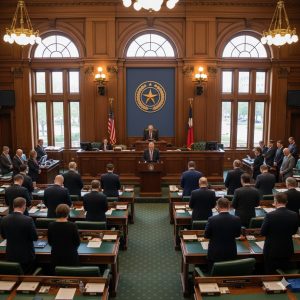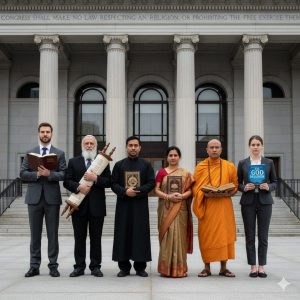
The views expressed here are my own and do not reflect the official policy or position of the U.S. Air Force, the Department of Defense, or the U.S. government.
Recently, Texas passed a law that will require every public school classroom to display the Ten Commandments. As someone who loves Scripture, respects tradition, and serves as a military chaplain candidate, I understand the instinct behind the move. A lot of people see it as a return to moral grounding—a way to remind students of right and wrong.
But I’ve come to believe that forcing sacred texts into public schools, especially by law, crosses an important line—both constitutionally and spiritually. In fact, I think it ends up doing more harm than good, not just to religious freedom, but even to the credibility of faith itself.
The Problem Isn’t the Ten Commandments—It’s the Coercion
Let me be clear: I believe in the Ten Commandments. They’re part of my faith tradition, and I do my best to live by them. But I also believe that faith loses something essential when it’s enforced by the state. The moment belief becomes a requirement—plastered on walls by political decree—it stops being an act of the heart.
Jesus said, “My kingdom is not of this world” (John 18:36). That means something. His way is not about legislation, but about transformation—about hearts freely choosing to follow. He didn’t compel worship by law. He didn’t demand belief by majority vote. He invited, He taught, He loved—and He let people walk away if they chose.
When a government mandates religious displays, especially in public schools where children are a captive audience, it moves from allowing faith to pushing it. And that’s where the danger lies.
The Constitution Protects Faith by Keeping Government Out of It
The First Amendment is beautifully balanced. It protects freedom of religion, and it also bars the establishment of religion. Those two halves work together. The government doesn’t get to tell you what to believe, and it also doesn’t get to promote one religion over another.
That’s why, back in 1980, the Supreme Court (Stone v. Graham) struck down a nearly identical law in Kentucky. The court said putting the Ten Commandments in classrooms had no real educational purpose—it was religious promotion, plain and simple.
The same thing is happening in Texas today. And it’s no surprise that faith leaders and parents across the spectrum are pushing back. Not because they oppose the Commandments, but because they believe—like I do—that faith must remain free without the appearance of state coercion.
Faith That’s Free Means Faith That’s Real
When we try to use government power to promote religious truth, we not only violate the Constitution—we diminish the power of faith. If the Ten Commandments are sacred, they don’t need the endorsement of the state to be meaningful. In fact, their true power shines when they’re chosen, not forced.
Let the church teach them. Let families live them. Let students ask about them. But let’s not turn them into a state-sponsored message—especially in a nation where not everyone shares the same beliefs.
Why This Matters to Me
As a chaplain candidate in the United States military, I’ve been taught to care for people of all faiths—and those with none. My calling is to protect spiritual freedom, not to promote one path over another. That’s what makes military chaplaincy unique: we’re not here to establish religion. We’re here to defend the right to believe, or not believe, in the way conscience leads.
I believe the same principle applies in public schools. When the state takes sides in matters of faith, it threatens the very liberty that allows belief to flourish.
Final Thought
The Ten Commandments matter. They matter deeply to many of us. But putting them on classroom walls by law doesn’t make them more holy. It just politicizes them.
If we really want to honor what they teach, let’s live them out—in kindness, honesty, humility, and love. Let’s keep our faith strong by keeping it free. That’s not just a constitutional value. It’s a biblical one too.


